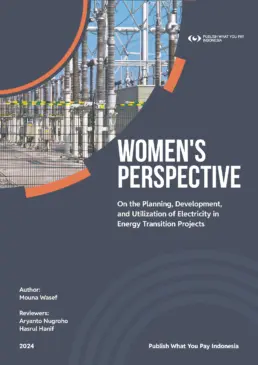Limited access to assets such as land and capital restricts women’s ability to adapt to the energy transition process. Compared to men, women bear a much more significant burden in domestic (household) work, which limits their access to paid employment as well as educational and training opportunities. This makes it difficult for women to cope with the ongoing transition, rendering them more vulnerable and unprepared to adapt.
For women, the energy transition can increase physical and psychological burdens. This is partly because the burden of domestic work remains predominantly borne by women, especially those living in rural areas. Women’s roles, which are still closely tied to domestic responsibilities, make them both key decision-makers and vulnerable to the impacts of energy consumption patterns in a family or household. As decision-makers, women are pivotal in achieving energy efficiency and reducing emissions at the household level, such as saving electricity and water usage and reducing household waste. On the other hand, using firewood or other fossil energy sources in the household can pose health risks.
Various strategic documents or standards on energy transition and climate change at both global and national levels emphasize inclusiveness and gender equality. The Long-Term Strategy for Low Carbon and Climate Resilience 2050 document released by the Indonesian Government underscores the importance of an effective and inclusive transition and climate-resilient development that meets gender equality needs. The Paris Agreement and Indonesia’s Nationally Determined Contributions (NDC) 2016 also require parties to take action to address climate change by mainstreaming gender equality, women’s empowerment, and intergenerational equity. The NDC, updated in 2021, reaffirms the commitment to reducing emissions by ensuring the participation of stakeholders such as local communities, vulnerable groups, women, and indigenous peoples in both the planning and implementation stage.

Author:
Mouna Wasef
Reviewers:
Aryanto Nugroho
Hasrul Hanif
Publisher:
PWYP Indonesia
Download: Format PDF – Google Drive